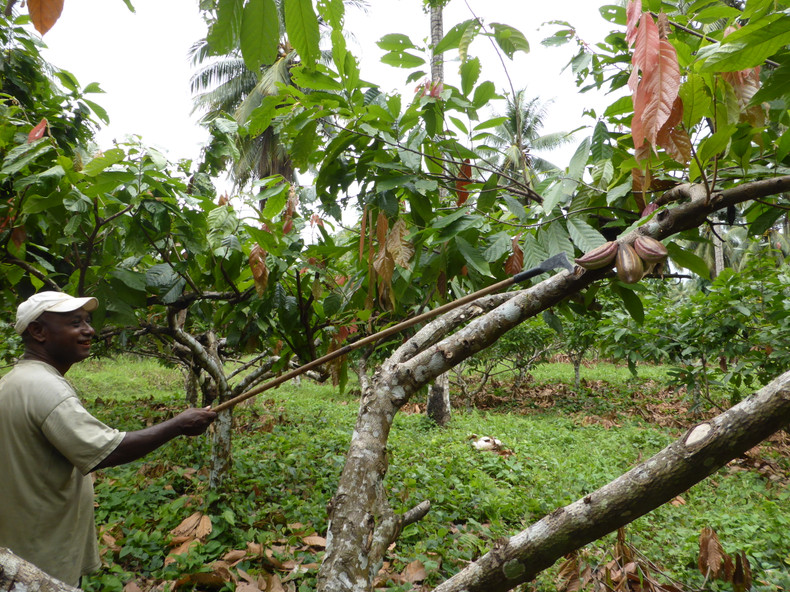Charley's beans
Charley’s seeks to reduce its environmental footprint at every opportunity while producing high quality world class single origin chocolate. One of these ways we do this is by dealing directly with reputable local cocoa farmers. This blog provides a visual story of our long term Karkar island cocoa supplier.
Beautiful Karkar Island, Madang Province, PNG
Karkar Island is an oval-shaped volcanic island located in the Bismarck Sea, about 30 kilometres off the north coast of mainland Papua New Guinea in Madang Province, from which it is separated by the Isumrud Strait. The island is about 25 km in length and 19 km in width. In the centre is an active volcano with two nested calderas.
Karkar Island – 30km from PNG mainland

Goodyear plantations west of MOM between Marangis & Kurumlang

The cocoa harvesting process at Karkar
The cocoa harvesting process is similar to what we do at Mt Edna, Mission Beach, but with a PNG touch. Notice the tree structure and compare with Charley’s trees
Karkar cocoa plantation

Harvesting pods the PNG way

Harvested
pods collected and ready for
opening

Once opened and the beans removed, they are fermented. The beans are then dried. Drying by sunlight is preferred but this can be a problem in some areas. Mission Beach has an average of 8 hours per day. Karkar Island data is a bit sketchy but a figure of 5.48 hours was found
Goodyear drying facility with wooden box fermenters on the left

Readying for despatch
Once dried the cocoa beans are sorted and bagged, ready for despatch by boat to Australia in Charley's case.
Happy workers in the sorting and packing area.

History of Karkar Island PNG
The first recorded sighting by Europeans of Karkar Island was by the Spanish navigator Iñigo Órtiz de Retes on 10 August 1545 when on board of the carrack San Juan tried to return from Tidore to New Spain. It was later visited by Willem Schouten and Jacob le Maire and called "High Island". In 1643 Abel Tasman passed the island. William Dampier visited the island, probably in 1699. The volcano erupted in 1895.
During World War II, the Imperial Japanese occupied the island. The Australian 37th/52nd Battalion landed on 2 June 1944, to find that the Japanese had evacuated the island and Australian 5th Division troops landed on the island at Biu Bay and Kavilo Bay on 6 June 1944.
An excellent account of the history of Karkar Island, from the 1920s to the present day, is provided in the autobiography of Sir John Middleton Kt, OBE, My Life on Karkar Island, Papua New Guinea. Sir John is now deceased but on a personal note, your chair, Ruth Medd, was introduced to Sir John in Sydney a few years ago. We chatted about cocoa growing.
References
https://www.charleys.com.au/our-sustainability/ covers activities from direct trade relationships with cocoa farmers to sustainable packaging.
https://en.wikipedia.org/wiki/Karkar_Island
My Life on Karkar Island - John Middleton with James Sinclair. ISBN: 978186333320,
Sunlight hours PNG https://www.worlddata.info/oceania/papua-new-guin...

